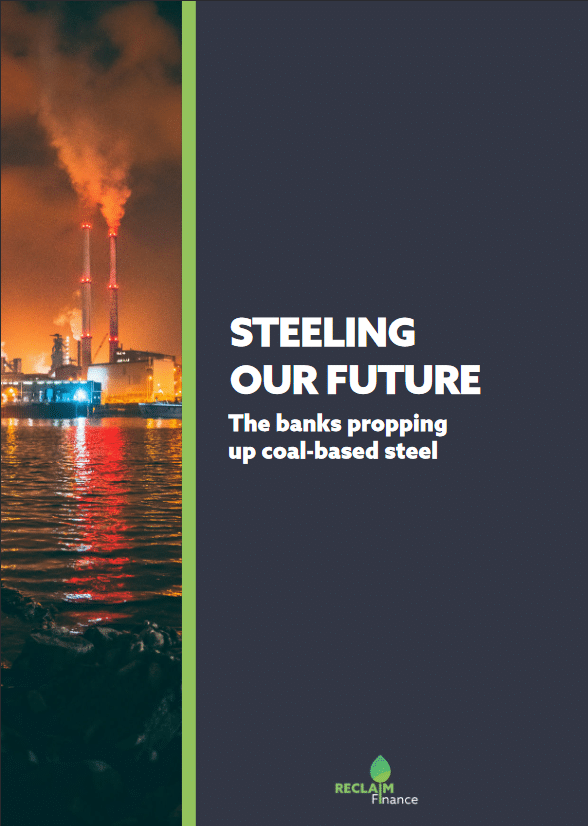
Steeling our future: The banks propping up coal-based steel
The iron and steel sector has a heavy climate impact, accounting for 11% of global CO2 emissions. Decarbonizing the steel sector is key to respond to the climate emergency. The climate impact of the steel sector is primarily due to its reliance on metallurgical coal for its production. Indeed, almost 90% of steel sector emissions are attributed to the coal-based route. As new technologies that do not rely on metallurgical coal develop, studies show that coal can be phased out of steelmaking in the early 2040s. This requires immediate action from banks.
Key findings:
Banks provided
billion to the 100 biggest steel producers.
- Between 2016 and June 2023, 354 banks provided US$429 billion to the 100 biggest steel producers, including US$326 billion from the top 50 banks.
- Three American banks, Bank of America, JPMorgan Chase and Goldman Sachs are among the top five financiers, providing US$15 billion, US$11.9 billion and US$11.6 billion respectively. Among the European banks, BNP Paribas is in 9th place, with US$ 9.4 billion, Crédit Agricole is in 13th place, with US$ 7.1 billion, and ING is in 16th place, with US$ 6.6 billion.
- Banks’ commitments on steel are not strong enough: out of the 50 banks analyzed in this report, only one (ING) has adopted a policy on coal–based steelmaking, but only at the project level, and 17 banks have adopted steel decarbonization targets, which are inadequate to stop the development of coal-based steelmaking capacity.
Banks have an important role to play in supporting the transition of the steel sector. They can help stop the development or refurbishment of coal-based blast furnaces, and they can support fossil-free projects. As shown in the report, the adoption of steel decarbonization targets does nothing to prevent banks from financing steel companies that have plans to expand coal-based steelmaking capacity or to extend the life of coal-based assets. Remediating this requires banks to prioritize the adoption of sectoral policies that restrict financing to coal-based steelmaking.
